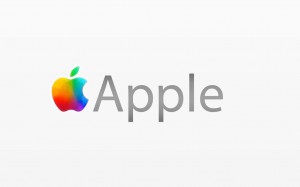
Apple asked for and received permission to test autonomous vehicles in California, but it's requesting some rules changes.
For a company that is supposed to have ditched the idea of developing a self-driving vehicle, Apple Inc. is certainly taking an active role into the research autonomous vehicles.
Apple, along with several other companies actively working on autonomous technology, such Ford Motor Co. Tesla, Waymo and Uber, is asking California to alter policy on testing self-driving cars.
In a letter, Apple recommended a sequence of changes to the draft policy that is still in development and stated that it looks forward to working with California and others “so that rapid technology development may be realized while ensuring the safety of the traveling public.”
Waymo, the self-driving car unit of Google parent company Alphabet Inc., Ford Motor Co., Uber Technologies Inc., Tesla Motors Inc. and Toyota Motor Corp. also filed comments.
(Apple gets the nod to test autonomous vehicles in California. Click Here for details.)
Apple’s proposal also would require carmakers to disclose when test drivers may have stepped in to keep away even minor traffic violations. Apple contends that the reporting rules as written leave too much twist room for car makers and “caused public confusion and misunderstanding,” Steve Kenner, Apple’s director of product integrity, wrote in his comments to the Department of Motor Vehicles, which administers California’s rules.
In keeping with the company’s traditional policy of shrouding its product development in tight secrecy, Apple has said little about its self-driving projects. However, speculation in the tech press is that the project might had been scaled back dramatically after several experts familiar with autonomous vehicles had left the company in recent months.
Thus, it was a surprise to many in Silicon Valley tech community when Apple asked the California DMV to test autonomous vehicles on the state’s public roads. Outside speculation still suggests that Apple is angling to become a supplier of self-driving vehicle systems technology with an eye towards collecting the immense cache of data autonomous vehicles are expected to generate and used to tell users where to go for coffee or guide them to a meeting with a client.
However, Apple’s corporate culture has typically eschewed the role of supplier and leaned towards producing its own branded products.
(Is Amazon also ready to enter the autonomous vehicle field? Click Here for the story.)
Meanwhile, in its comments, Tesla, which has announced plans to develop trucks, complained about weight restrictions for driverless vehicles.
Ford asked for less onerous requirements for approval of software updates, noting that “multiple” software updates within a year could exist and leave test fleets grounded for days at a time while a manufacturer waits for DMV approvals.
Manufacturers also have begun testing driverless vehicles in places such Arizona and Michigan.
Waymo, for example, announced it was ordering an additional 500 Chrysler Pacifica minivans for an extensive test in Phoenix that will include volunteer passengers using autonomous vehicles. Uber is also testing vehicles around Phoenix.
(To see more about Apple’s automotive setbacks, Click Here.)
GM CEO Mary Barra also confirmed last week that GM had begun testing autonomous vehicles around Detroit.
